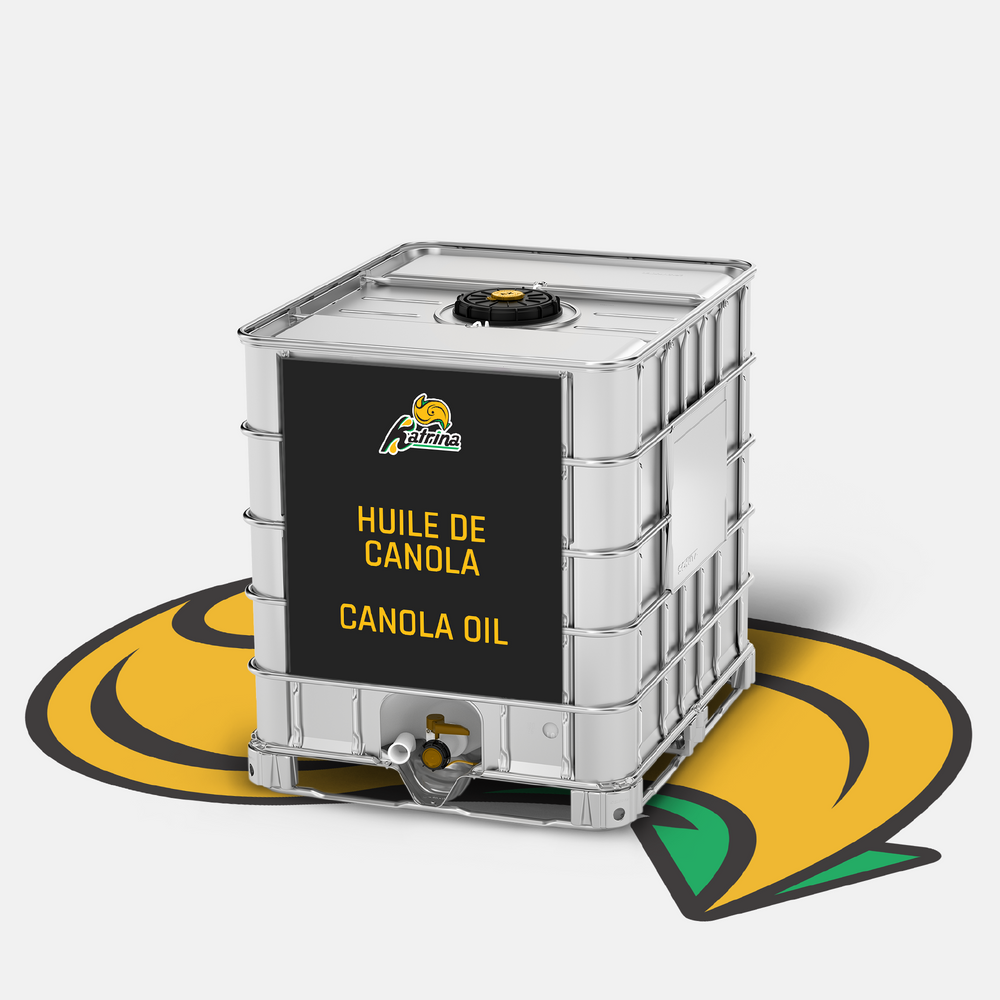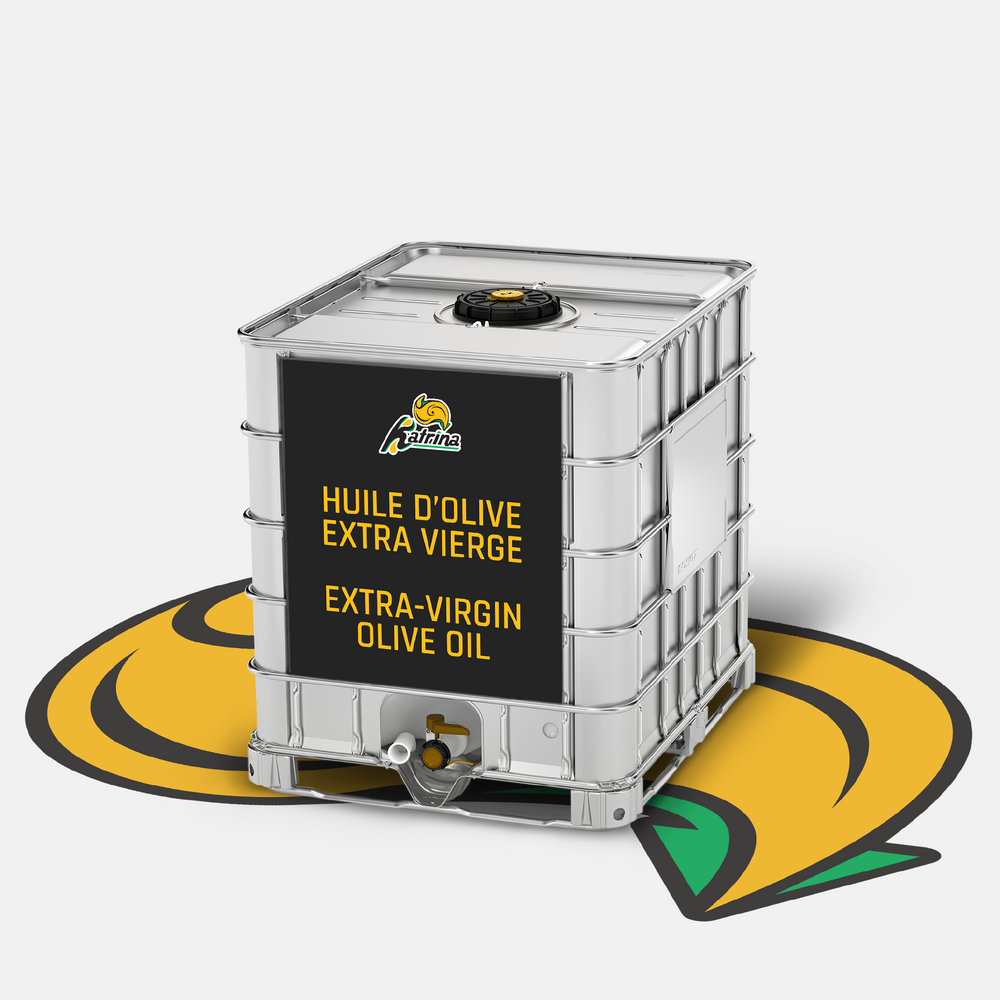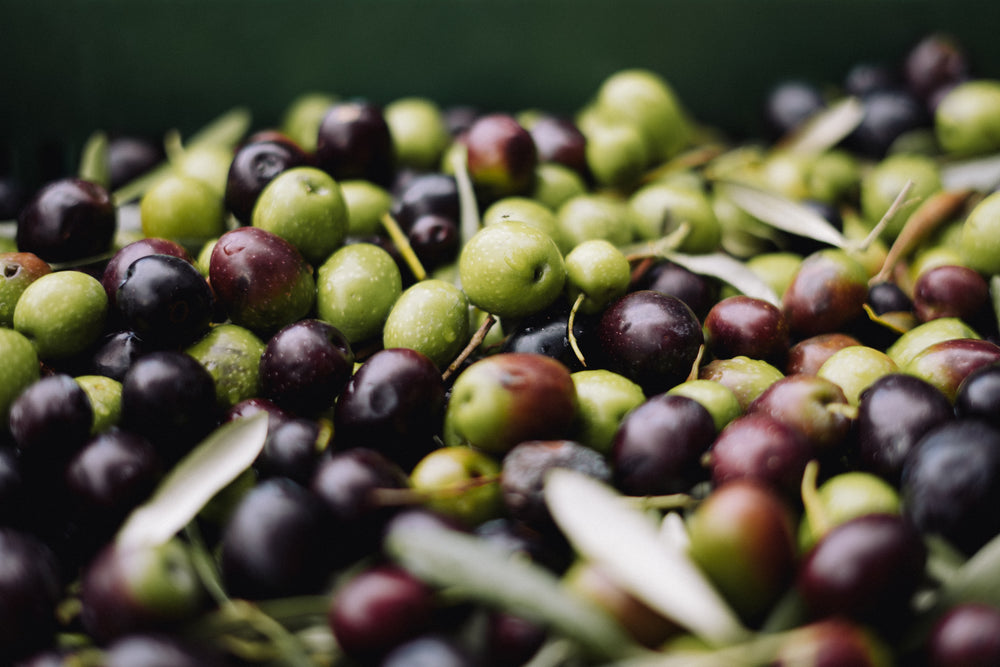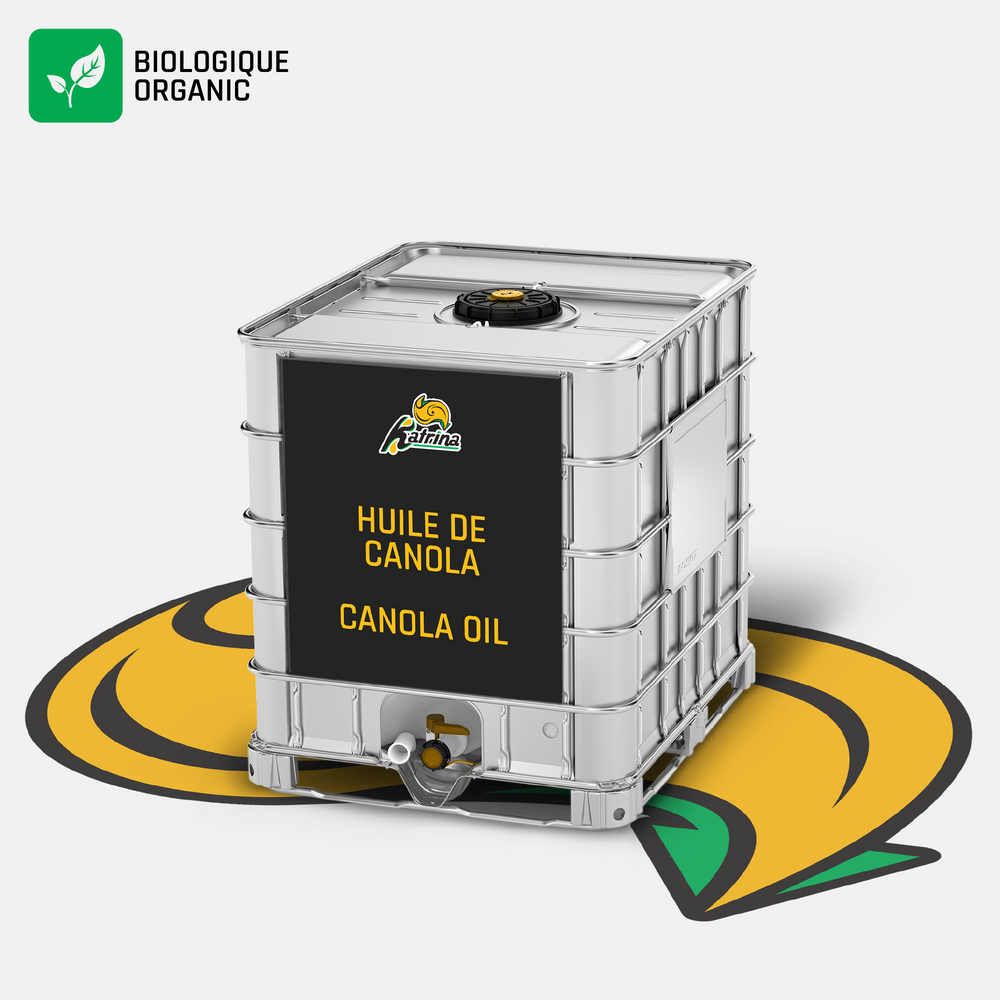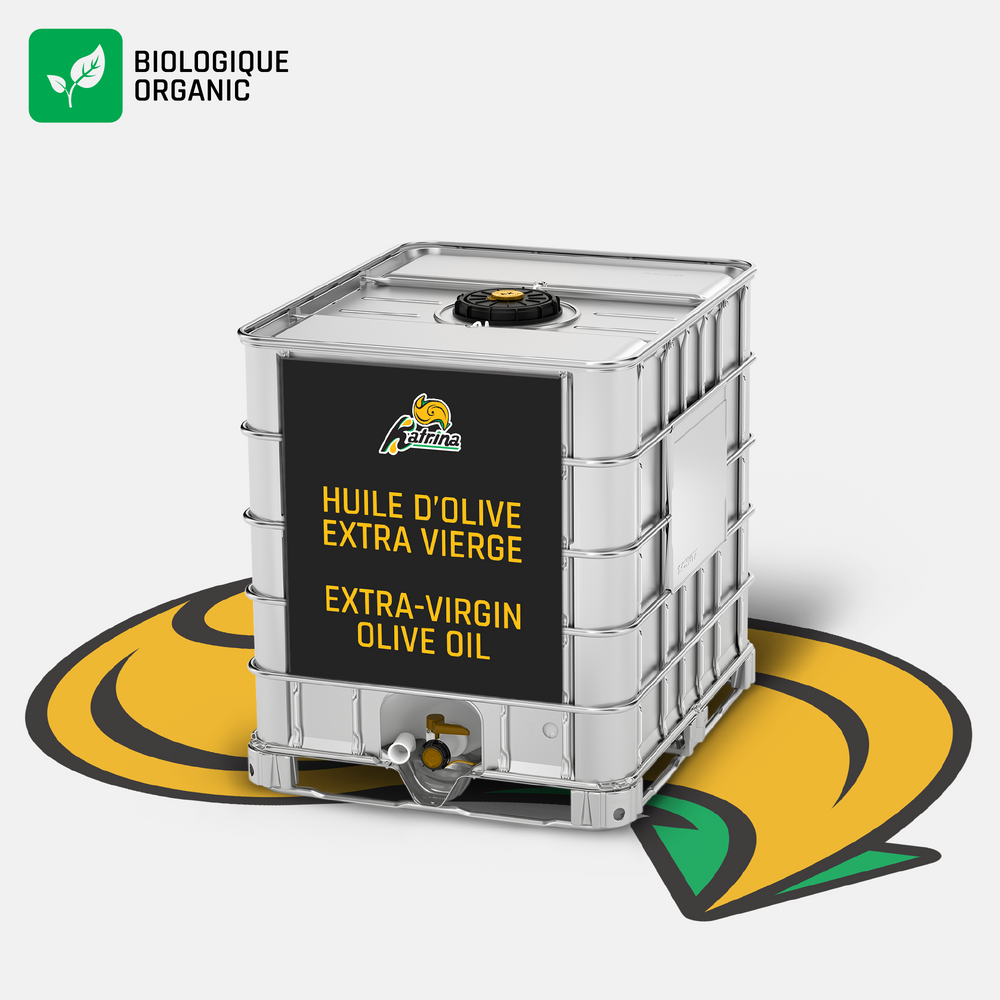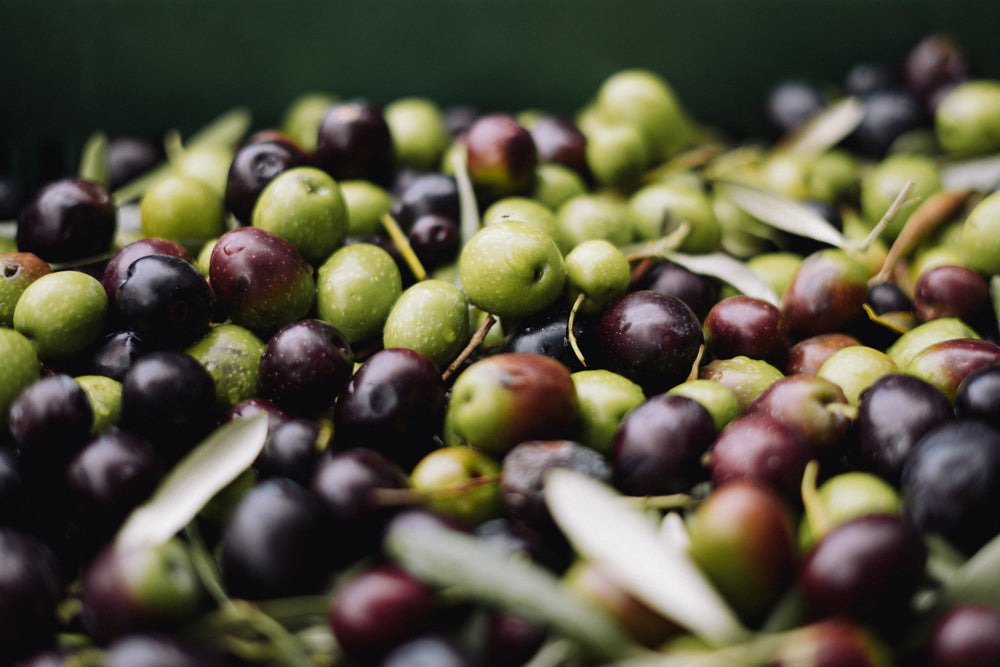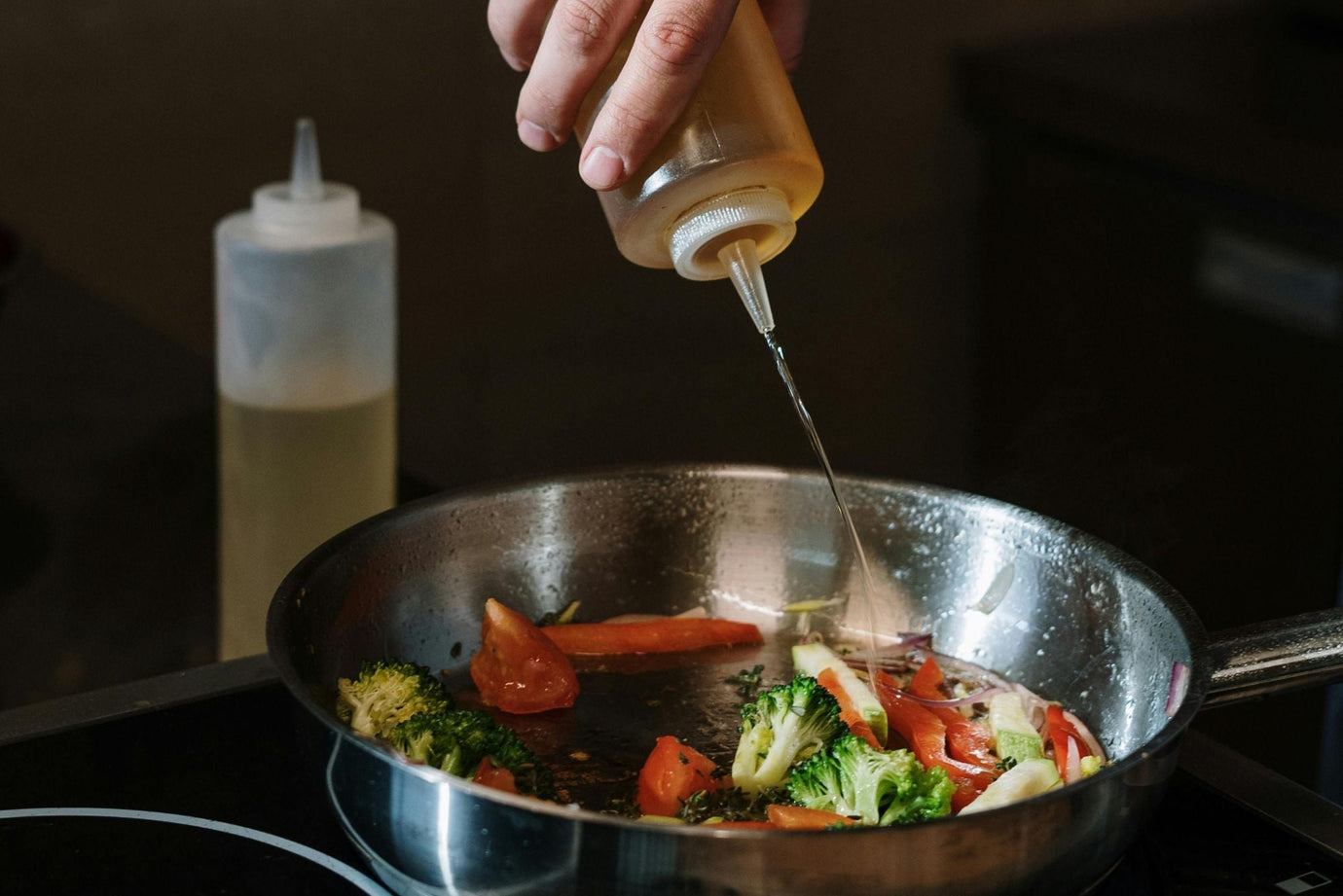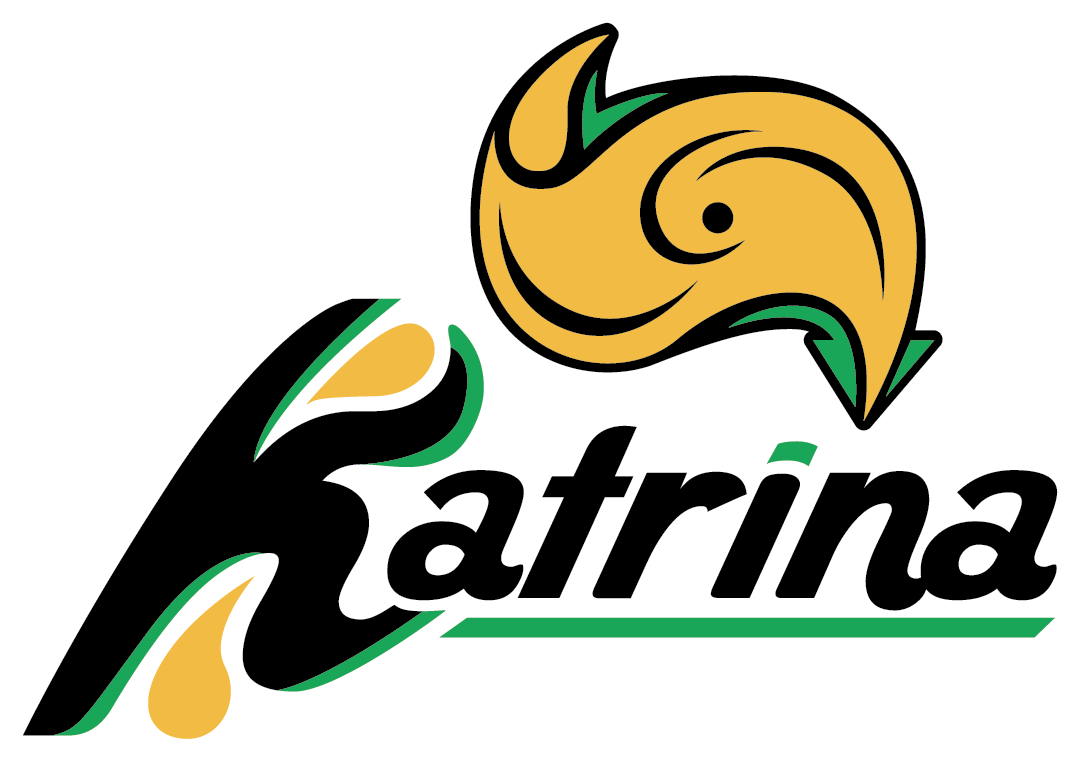Canola Oil vs. Olive Oil: Which One's Better?
Canola oil and olive oil are two of the most popular cooking oils in Canada and the US, and are often found side-by-side on grocery shelves.
If you look closely at the price tags, you’ll notice that olive oil is typically pricier than canola oil. While it makes sense to go for the cheaper option, it’s important not to base your decision on price alone.
In this blog post, we'll explore the differences between canola and olive oil in terms of health benefits, flavours, and smoke points, so you’ll know what to use for your next recipe or project.
How Canola Oil and Olive Oil Are Made
There’s a huge difference in how canola oil and olive oil are produced. For one, canola is a seed oil, whereas olive oil comes from olive fruits. This means canola seeds go through more processing compared to olives.
First, canola seeds are crushed to get most of the oil, then the rest is extracted using a solvent like hexane. The resulting oil then undergoes refining, bleaching, and deodorizing to make it safe for consumption. The majority of canola oil available on the market is made using this process, but there are varieties like expeller-pressed canola oil which uses chemical-free extraction methods.

In contrast, olive oil is made by mechanically pressing ripe olives. It comes in different grades: extra virgin olive oil (EVOO) is obtained from the first press and is sold without further refining, while regular or "pure" olive oil is a mix of virgin and refined oils. Because of this distinction, EVOO is considered a premium cooking oil and costs more than canola.
Health Benefits of Canola vs. Olive Oil
Good news: both canola and olive oil are good for your heart! According to Harvard Health, it's only a myth that canola causes obesity and other health problems, as some have argued in the past.
In fact, canola oil is considered a heart-healthy oil with its low saturated fat and high polyunsaturated fat content. It's packed with a good ratio of omega-3 and omega-6 fatty acids that are linked to lower chances of getting heart disease.
Olive oil, in addition to being good for your cardiovascular health, also contains a high level of polyphenols, which have antioxidant and anti-inflammatory properties. This makes it one of the healthiest cooking oils and a crucial component of the Mediterranean diet.
Which is Healthier, Canola Oil or Olive Oil?
Even though canola oil has many merits, olive oil is a healthier pick overall. Opt for high-quality extra virgin olive oil for the best health benefits. This type of oil has the highest nutritional value because its production does not involve high heat or refinement, which can remove some antioxidants.
Flavour Profiles of Canola vs. Olive Oil
There’s a reason why certain recipes call for olive oil specifically, like those in Italian and Greek cuisine. Olive oil, especially EVOO, provides a depth of flavour to dishes that you can’t get with neutral-flavoured oils like canola and sunflower oil.
You aren’t limited to one specific taste either, because EVOO ranges from fruity to grassy and spicy, depending on the region where the olives were grown. Olive oil is best used when you want the oil to impart a strong flavour like in salad dressings, marinades, or drizzled on top of dishes.
On the other hand, canola oil does not have a distinct flavour by itself. This quality makes it very adaptable for all sorts of recipes where you don't want the oil to compete with other flavours. Using it in baking is common since you usually want those sweet or savoury elements to stand out more.
Sure, you can still swap olive oil and canola oil in a lot of recipes, but just remember that switching might tweak the final taste.
Smoke Points of Canola vs. Olive Oil
The smoke point of an oil is the temperature when it starts to break down and release smoke. You’ll want to avoid reaching this limit because it creates harmful compounds and unpleasant flavours in your food.
Contrary to popular belief, olive oil can withstand high heat levels and can even be used for deep frying. Extra virgin olive oil has a lower smoke point compared to other oils though, so canola oil is a more suitable choice for high-heat cooking methods such as deep frying and searing.
Comparing the Cost of Canola vs. Olive Oil
Another reason why we recommend canola for bulk oil needs like deep frying is because you’ll need lots of it. Canola doesn't hit your wallet as hard as olive oil does. It's pretty common and easy to find which helps keep its price down.
On the flip side, olive oil prices aren't all the same; they change based on what kind you're getting, and can even vary depending on the year. If we talk about extra virgin olive (the top-notch stuff that tastes great), you'll notice its price tag is higher than other kinds of olive oils. Though this reflects the quality, it may not be the most practical choice if you’re on a budget.
Which One Is Better?
In online forums and chef discussions, most agree that both canola oil and olive oil have their place. It depends on what you’re cooking, how much oil you need, and the result you’re looking for.
Olive oil is generally considered to be a healthier option than canola, but this doesn’t mean you should reach for olive oil 100% of the time.
It’s true that olive oil can be a bit more expensive, but for quality, flavour, and health benefits, it’s often worth it. Canola is a more cost-effective option for bulk use, however. Keep these in mind next time you’re choosing between canola and olive oil!
Frequently Asked Questions
Is Olive Oil Or Canola Oil Better For You?
Olive oil is generally considered to be “better for you,” since it’s usually less processed, contains polyphenols, and has anti-inflammatory properties. However, canola oil is also reached for as a heart-healthy option, known for its low content of saturated fats.
Is Olive Oil The Same As Canola Oil?
Olive oil and canola oil are not the same. Olive oil is made from olives, while canola oil is made from the canola plant (also known as the rapeseed plant). However, it’s common to find both oils combined in various types of blends.
What's The Difference Between Olive Oil And Canola Oil?
Olive oil is made from olives and canola oil from the canola plant’s seeds. Olive oil is generally green and has a stronger flavour, while canola oil is a light yellow colour and has a neutral flavour. Canola oil contains less saturated fats, and olive oil is known for its beneficial polyphenols and anti-inflammatory properties. Canola oil also has a higher smoke point than olive oil, so it’s often used in frying and high-heat cooking. Olive oil’s flavour makes it a more obvious choice for raw applications like salad dressings and dips.
References
“Choosing heart-healthy oils for home cooking” – Harvard Health Publishing
“Is extra-virgin olive oil extra healthy?” – Harvard Health Publishing
“Canola oil: heart-healthy oil for all kinds of cooking” – Canola Council of Canada

